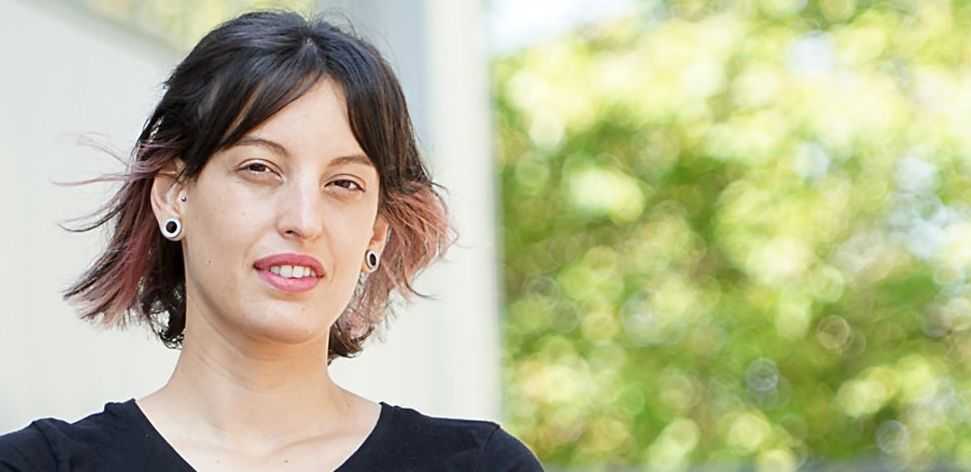
The Spanish Society of Linguistics awards Iria de Dios Flores the national prize for the best thesis of 2021
The CiTIUS postdoctoral researcher will participate as a plenary speaker at the 51st edition of the organisation's Conference, which will take place in Murcia (Spain) in January 2023.
The thesis of CiTIUS researcher Iria de Dios Flores has been distinguished as the best doctoral work of the year 2021 by the Spanish Society of Linguistics (SEL), a scientific and non-profit organisation that brings together experts from all fields of the science of language. The jury's decision was announced after the closure of the fiftieth edition of the Symposium and the IV Congress of the Society, postponed in 2021 and held recently in Madrid.
The award includes an invitation to participate as a plenary lecturer in the next symposium of the organisation, to be hosted by the University of Murcia from 24 to 27 January 2023, and its concession recognises the work embodied in the work Processing long-distance dependencies: an experimental investigation of Grammatical Illusions in English and Spanish. A thesis that aims to contribute to the agenda of the scientific community concerned with understanding the mechanisms and architectures used by the human language processing system (known as parser) to process and understand the relationships established between the different elements of a sentence.
Reaching language from the perspective of cognitive psychology
"I am very surprised, and very happy", says Iria de Dios Flores. "I saw the news on Twitter on a Friday afternoon, even before receiving the official announcement, and it took me a few hours to assimilate it... it took me a while to internalise it, but that same evening we went to celebrate it", she jokes. "I think the most 'original' part of my work is my own evolution as a scientist, the transformation from my initial profile as a linguist to the one I have reached during the thesis, which is not very common in this field", says the researcher.
The awarded thesis revolves around cognitive science (in particular, psycholinguistics), and addresses different fields, such as experimental evaluation, the creation of linguistic materials, data processing and statistical modelling. The CiTIUS postdoctoral researcher explains some of the keys of the work which has been now recognised by the SEL: "throughout this thesis I have focused on the study of different types of structures in English and Spanish using experimental psychology techniques, such as the recording of eye movements during reading" (known as eye-tracking). In total, a set of 12 experiments have been recorded, which have contributed to narrowing the range of hypotheses on the phenomena studied, opening up new lines of research. This work was carried out halfway between the University of Santiago (USC) and the prestigious neuroscience research centre specialising in language BCBL (Basque Center on Cognition, Brain and Language), and was directed by the scientists Carlos Acuña, professor of linguistics at the University of Santiago (USC) and Manuel Carreras, scientific director of the BCBL Ikerbasque, honorary professor at the University College of London (UCL) and distinguished researcher at the University of the Basque Country (UPV/EHU).
In addition, the work includes two stays in foreign research centres: the Cognitive Neuroscience of Language Laboratory (University of Maryland, USA) and the Human Cognition Laboratory (Universidade do Minho, Portugal). Previously, in 2015, the researcher had also taken doctoral courses at the University of Chicago (USA), thanks to a fellowship from the Linguistic Society of America, the most important organisation in the world in the field of linguistics.
Regarding the direct consequences that this award may have on her career, Iria de Dios Flores highlights the visibility: "the fact of giving the plenary lecture next year is not only a great responsibility, but it can also help to publicise my work and, consequently, that of my collaborators, groups and research centres where I did my thesis, and of which I am now a part", reflects the CiTIUS researcher.